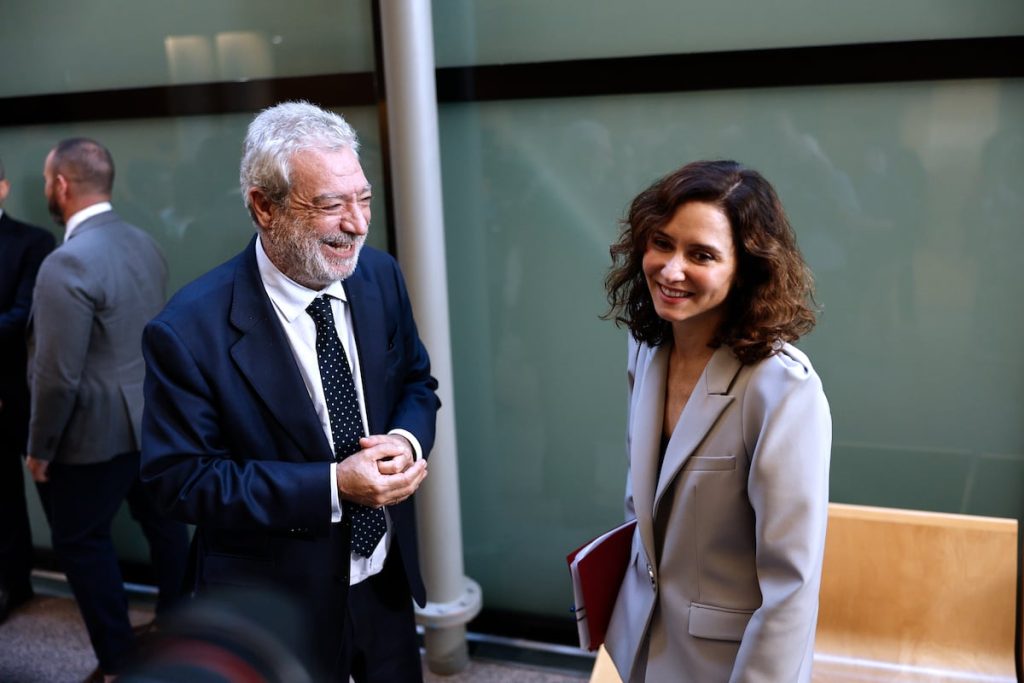Miguel Ángel Rodríguez, chief of staff to the president of the Community of Madrid, has accused the Attorney General of State, Álvaro García Ortiz, of being implicated in a lie after he asked the Madrid Prosecutor’s Office to release a press statement contradicting false information spread by the Madrilenian government. The statement specifically addressed a fake news story about an alleged agreement between the Prosecutor’s Office and the partner of the president of Madrid, which turned out to be untrue. As a result, the partner filed a lawsuit against García Ortiz for breach of confidentiality.
Rodríguez has a history of making grim predictions through social media regarding the legal future of various political figures and their relatives. He has previously indicated that investigations involving Begoña Gómez, the wife of the Spanish president, and David Sánchez Pérez-Castejón, the brother of Pedro Sánchez, will proceed forward. Furthermore, he suggested that cases such as Koldo, a scandal involving mask procurement during the pandemic, will have legal consequences for high-profile politicians like José Luis Ábalos. Despite not being currently charged, Ábalos himself acknowledged the possibility of facing legal repercussions in the future.
Rodríguez’s confrontations with the press have been contentious, leading to accusations of defamation against journalists investigating the alleged financial discrepancies of Ayuso’s partner. These conflicts have sparked condemnation from the Federation of Press Associations (FAPE). His tweets have also alluded to ongoing legal battles involving top officials, including Begoña Gómez, David Sánchez, and Álvaro García Ortiz. The use of the term “pá’lante” suggests that he expects these cases to progress through the justice system, with potentially dire consequences for those involved.
The Attorney General requested that the Madrid Prosecutor’s Office issue a press release in response to false claims made by the Madrilenian government regarding an alleged plea agreement that was later rescinded. Despite the Prosecutor’s initial disagreement with the order, García Ortiz insisted on clearing up the misinformation to avoid damaging the reputation of the prosecutors involved in the case. While Ortiz defended his actions as a legitimate exercise of his duties, the authenticity of his decision is currently under scrutiny, pending possible investigations led by the Tribunal.
Rodríguez’s online statements foreshadowing legal troubles for high-profile individuals have intensified public scrutiny and reinforced his position as an influential figure in the political landscape of Spain. His predictions have hinted at impending legal ramifications for influential figures involved in corruption scandals and have been met with both skepticism and intrigue. While the accuracy of his predictions remains to be seen, the ongoing legal battles and investigations mentioned in his messages highlight the complexities of politics and justice intersecting in contemporary Spanish society.
In light of recent events, including the contradictory statements issued to the media and the controversy surrounding the legal proceedings against Ayuso’s partner, the political climate in Spain appears increasingly charged. The intersection of power, legal proceedings, and public opinions portrayed through online platforms like social media has intensified the ongoing debates and controversies surrounding influential figures in the country. As the legal battles unfold and public opinion shifts, the implications of these confrontations continue to shape the political landscape and public perception of key figures implicated in financial scandals and corruption allegations.


